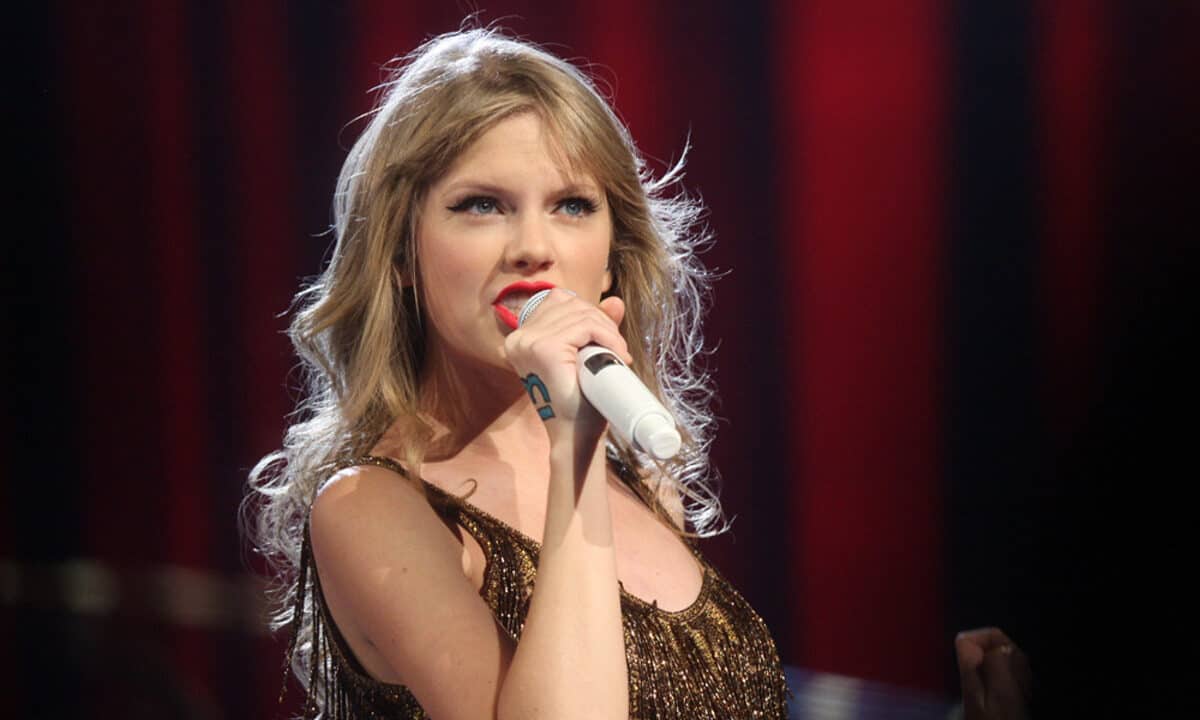 Taylor Swift by Eva Rinaldi is licensed under CC BY-SA 2.0 DEED.
Taylor Swift by Eva Rinaldi is licensed under CC BY-SA 2.0 DEED.
Swifties may still be riding high from the recent Super Bowl victory of their new favorite NFL franchise, but they can no longer use Taylor’s music to make memes on one of the world’s largest social media platforms.
At the beginning of February, licensing negotiations between Universal Music Group, the world’s largest music licensing company, and TikTok broke down, prompting UMG to remove their entire catalogue from the platform. The incident should serve as a reminder for TikTok of the importance of intellectual property rights, especially for less-established artists.
TikTok typically pays royalties to rights holders to legally host their music on its site. Music licensed by the platform can then be used to make videos, which has given both TikTok and Instagram Reels their unique short-form video style. In January, UMG announced that TikTok had tried to insist on a contract that would have significantly cut pay to artists. Unable to accept these terms, UMG walked and allowed their current agreement to expire. Thousands of existing videos with songs from the UMG catalogue went silent.
While Taylor Swift is the most successful recording artist in the world right now, smaller artists that have yet to break through are the ones who suffer in disputes like these. Social media is an excellent tool for newcomers to break through. Lil Nas X is the most famous example of a new artist made popular by social media, but even older songs that were never big hits are finding a second life on TikTok and Instagram Reels.
International music is also finding new audiences: French singer-songwriter Jain’s “Makeba” was a hit in France but was largely unknown to Americans until it suddenly seemed to be in every other short form video. The next Taylor Swift will likely break through on social media like she broke through on country music radio – if social media plays by the rules and respects IP.
Intellectual property rights are the bedrock upon which this entire system is built. The licensing agreements that UMG and its competitors conclude with platforms ensure compensation for artists while allowing users free rein with their copyrighted works. The platforms make their money from advertisers to pay these fees while allowing their users access free of charge. This mutually beneficial relationship holds as long as all parties respect artists’ original ownership of their songs.
UMG therefore has a fiduciary duty to its artists, big and small, to secure just compensation for use of artists’ music from those who license it. This is as true of digital giants like TikTok as it is of the film industry making movie soundtracks or non-commercial college radio stations fundraising each year to pay the fee (as I know from personal experience).
Of course, plenty of music combines influences from previous artists. Jimi Hendrix did not write “All Along the Watchtower” and Darius Rucker did not write “Wagon Wheel” – Bob Dylan composed both. Dylan himself ripped from blues, soul, and folk artists who never became household names. Musicians often sample each other’s work or incorporate melodies from existing songs to create unique tapestries of sound. TikTok is positioned to encourage this process and enrich our culture – but if they disregard IP law, music licensing groups will not work with them. Artists will likewise be discouraged from creating original songs if they are not certain they can support themselves on the royalties to which IP entitles them.
TikTok’s intransigence not only deprives artists of just compensation for use of their property and erects a barrier to entry for unknown artists, but also harms the platform itself. With thousands of videos suddenly without sound, a significantly reduced catalogue of music for users, and many of the planet’s most popular artists unavailable, was it worth it to try to blow up IP rights just to save costs? Rather than stubbornly hold out for worse pay, TikTok should recognize that its own interest lies in securing IP rights to catalyze content generation on all levels.
A global melting pot of content and cultural influences producing new and better creations was the entire promise of the internet (and especially of social media) in the first place. If they do not respect IP and fairly compensate artists, TikTok risks undermining this great achievement.

